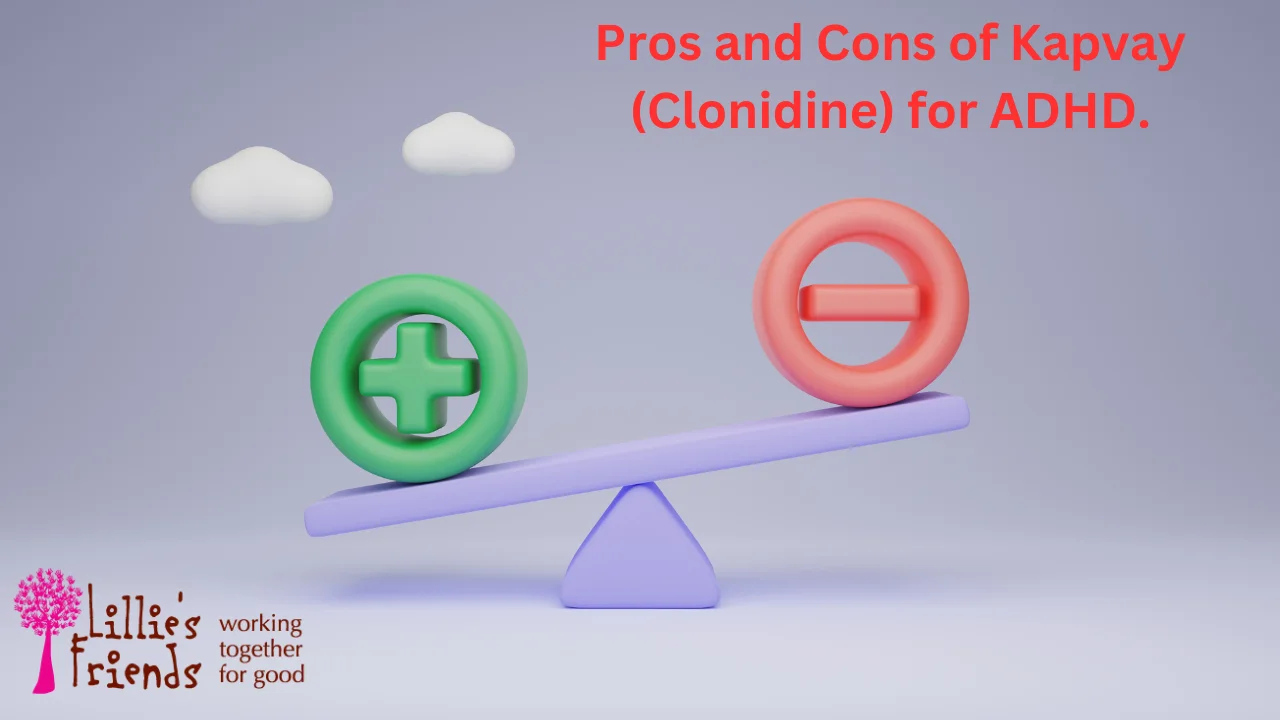Medical Disclaimer
The medicines listed on this website are only there to give you knowledge. Just because they are on the list doesn’t mean that anyone will be given them; in the end, treatment decisions are up to the healthcare workers. The medicines on this list are not all of them. Doctors may recommend other drugs, even ones that don’t contain stimulants, depending on the patient’s specific health needs and circumstances. Read more
Clonidine, also sold under the trade name Kapvay, is a nonstimulant medication used as a second-line therapy for ADHD. While stimulant drugs are often the first line of treatment for this illness, they may not be appropriate in all cases. These people may benefit more from clonidine for ADHD.
This article examines Clonidine’s efficacy and negative effects treating ADHD in adults. Here’s all you need to know.
What Is Clonidine Used For?
Clonidine belongs to the class of drugs known as alpha-adrenergic agonists. These drugs improve blood flow by relaxing the arteries. The FDA[1*] first authorized clonidine for treating high blood pressure and ADHD. There may be further applications: physicians may prescribe clonidine for anxiety since it reduces the frequency and severity of panic episodes.
Clonidine ER (Kapvay) may be used alone or in conjunction with stimulant medications to treat attention deficit hyperactivity disorder. People whose ADHD symptoms persist after using stimulants or antidepressants are given clonidine as an alternative. Clonidine may be an option for people who are unable to tolerate the adverse effects of other ADHD drugs, such as those suffering from sleep difficulty, addiction, cardiovascular illness, or mental disorders.
Clonidine, which affects alpha-2 adrenergic receptors in the central nervous system, may help persons who are impulsive, hyperactive, and/or inattentive. Blocking these receptors with medications such as clonidine may alleviate symptoms[2*] associated with these habits.
How Long Does Clonidine Take To Work?
Because clonidine is not a stimulant, it may take longer for a person with ADHD to experience its effects than a stimulant. Taking ADHD medication may improve symptoms within a few weeks[3*]. Individual circumstances determine the precise anticipated time.
Clonidine Dosage For ADHD
Clonidine is available as extended-release pills. Your doctor may first recommend taking 0.1 mg once a day at bedtime. However, the dose of this drug varies based on the patient, and your doctor may increase it if required. Clonidine has a maximum dose of 0.4mg per day. Before beginning therapy, double-check the directions provided by your doctor or on the label.
Pros and Cons of Kapvay (Clonidine) for ADHD.
Although clonidine is a suitable choice for those who do not react to stimulants, it does have certain downsides. The advantages and disadvantages of clonidine for ADHD are discussed below.
| Pros | Cons |
|
|

Clonidine Side Effects:
Even if the treatment is effective, it might have harmful side effects. Clonidine has the following common side effects[4*]:
- Sleepiness
- Fatigue
- Constipation
- Decreased appetite
- Dry mouth.
- Dizziness
- Headache
- Nausea
- Aggression
- Stomachache.
Clonidine ER (Kapvay) may cause serious health concerns. For other groups, the hazard may be substantially greater:
- Individuals with a history of low blood pressure or heart rate.
- Patients using other sedative or sleep-inducing drugs.
- People with high blood pressure (hypertension).
- People with renal difficulties.
- People who have had an allergic response to other types of clonidine.
- Individuals having a history of abnormal EKGs or cardiac conditions.
Lastly
Despite not being the first option, Clonidine for ADHD may be effective in certain cases. It may be administered alone or in combination with other stimulants or non-stimulants. After a thorough symptoms check and diagnosis, your doctor will create a specific treatment plan to see whether clonidine is the best choice for you or if an alternative is more effective.











